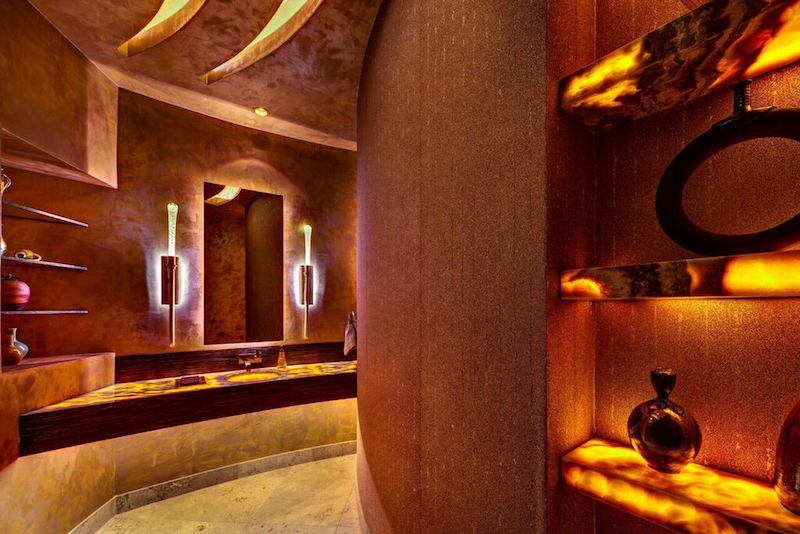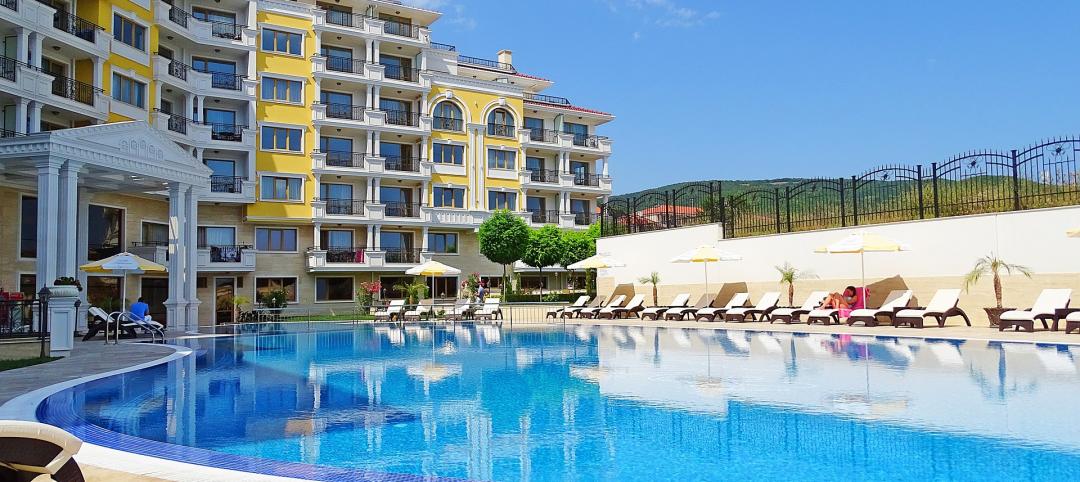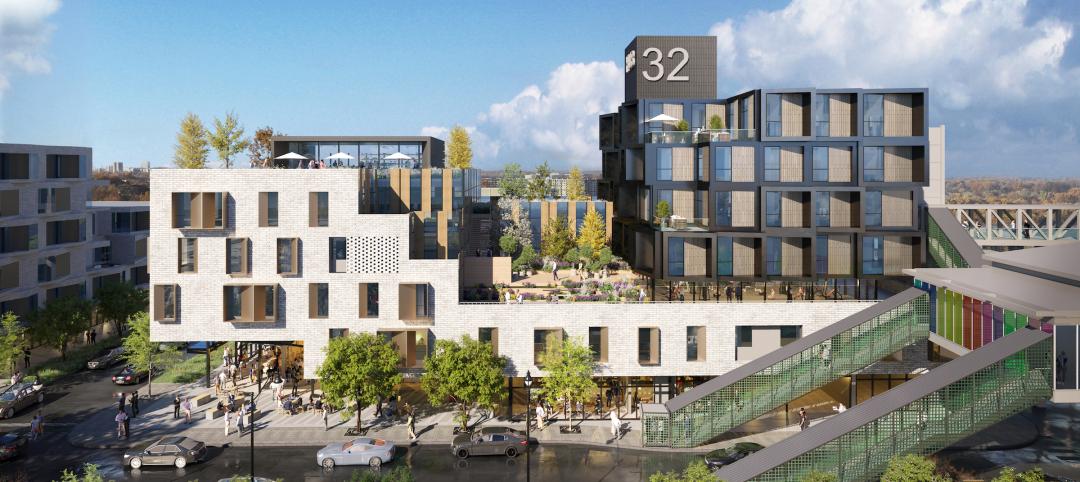They say even a king looks like a jester while sitting on the porcelain throne. And while that may be true, that doesn’t mean the bathroom itself can’t be fit for a king (or a queen).
But what constitutes "fit for a king" changes throughout the years. It can be tough to stay on top of the trends on a year-to-year basis, but the National Kitchen and Bath Association (NKBA) is a good place to turn for help. The NKBA has just released its 2016 Kitchen & Bath Design Trends Survey and it appears as though, similarly to the 2016 kitchen trends, bathrooms are becoming less flashy and more focused on the user’s experience. It is all about “stealth wealth,” places where consumers can “indulge privately, with an emphasis on comfort, personal statements, and style,” said Kathleen Donohue, CMKBD, CAPS, a remodeler from Oregon.
This online survey was conducted in late 2015 and incorporated the responses of more than 450 NKBA members. In addition to reporting the results for the full calendar year 2015, respondents were also asked to report on which styles and products were increasing, decreasing, or showing no change in popularity.
About half of the responding members said their average price for a bathroom was between $10,000 and $29,000. 31% said their average price for bathrooms was higher than $30,000.
Therefore, the trends identified in this study are most relevant for bathrooms in the $10,000 to $29,000 range, though they should not be taken as exclusively residing in that price range.
The following are 10 of the top bathroom design trends for 2016 to make anyone feel like royalty while in the bathroom.
1. Aging-in-place amenities
The number of people in the U.S. age 65 and older is expected to reach 88.5 million by 2050, so it shouldn’t come as a surprise to learn that aging-in-place amenities are gaining wider acceptance. Things like no threshold showers, grab bars, higher vanity heights, and chair-height toilets were all features reported by NKBA members. 57% of respondents specified comfort height toilets and 29% specified no-threshold showers. Comfort height toilets represent the largest expected increase for 2016 as 36% of members expect to do more.
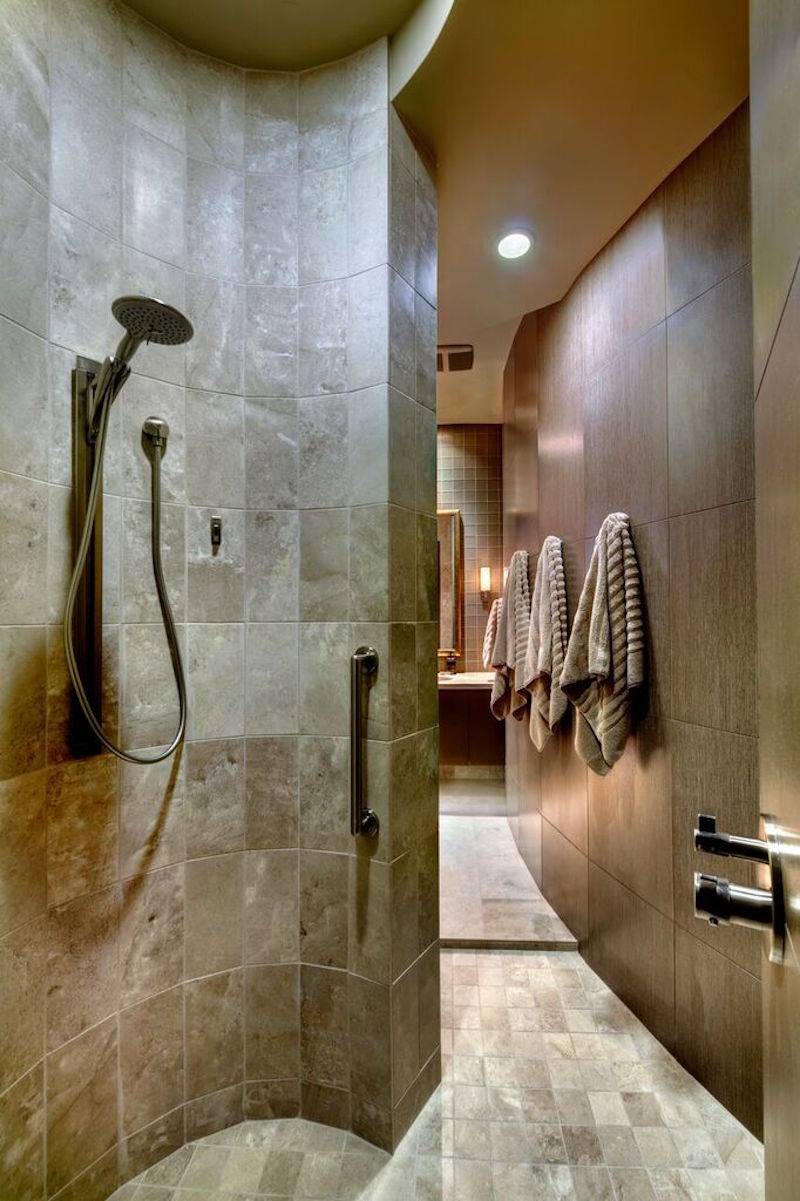 Photo Credit: William Lesch, Lori Carroll, Debra Gelety
Photo Credit: William Lesch, Lori Carroll, Debra Gelety
2. Transitional Style
The transitional style bathroom is widening the gap between the next most popular style of contemporary. NKBA members specified 79% transitional bathrooms in 2015 and just under 40% expect to do more in 2016. Although, the transitional style is less popular in the Southwest. Mass retailers and male designers seem more enamored with transitional style bathrooms than any other groups. Meanwhile, contemporary bathrooms are more common in the U.S. than in Canada.
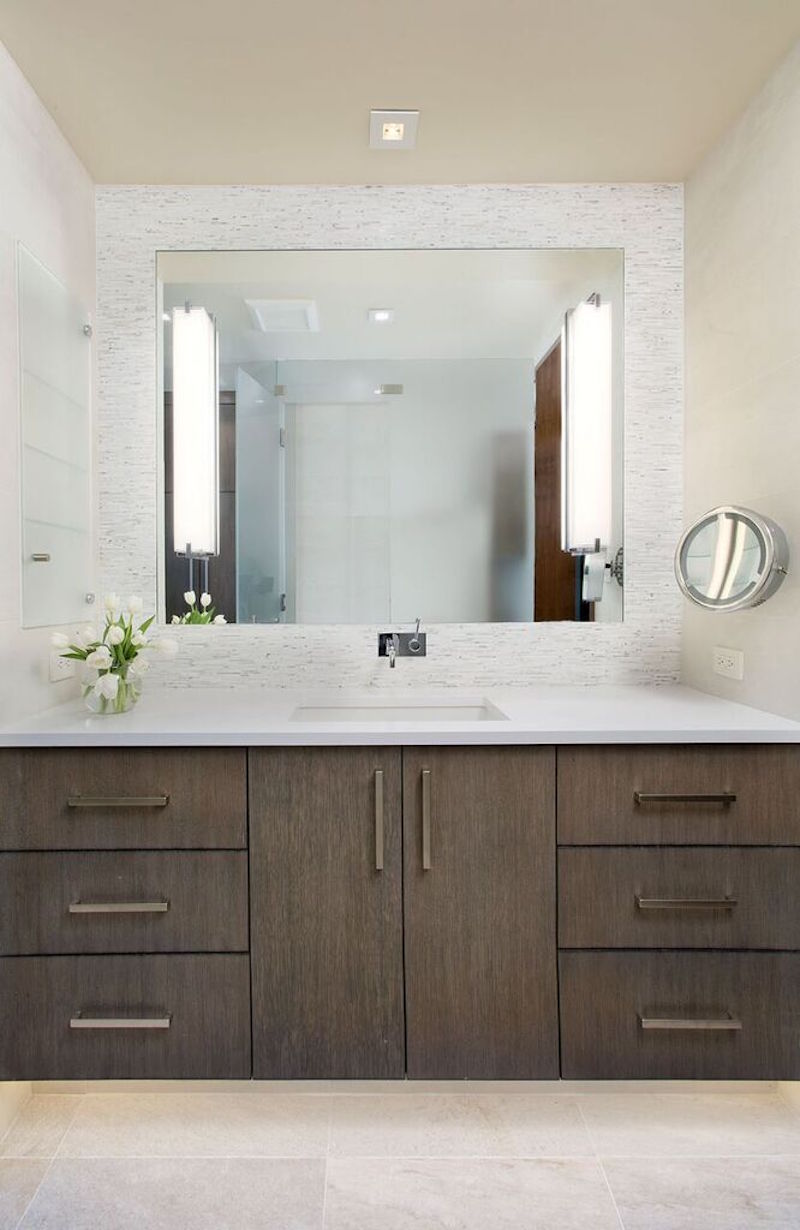 Photo Credit: Jeremy Swanson, Anne H. Grice
Photo Credit: Jeremy Swanson, Anne H. Grice
3. Remaining Neutral: Whites and grays rule the day
Want an idea of how dogs see the world? All you have to do is step inside a typical 2016 bathroom. Whites, off-whites, grays, and beiges are far and away the most popular colors and tones for bathrooms. 79% of NKBA members specified doing gray bathrooms in 2015, 77% specified white or off-white, and 65% specified beige. Correspondingly, members expect to do more of these colors to the tune of 53%, 38%, and 14% in 2016. Stepping away from the more anodyne color schemes you will find greens, blues, browns, and blacks, although these colors are not used nearly as often as the neutral tones.
 Photo Credit: Shelly Harrision, Jaye Gordon, Mark H. Haddad, AKBD
Photo Credit: Shelly Harrision, Jaye Gordon, Mark H. Haddad, AKBD
4. Open Shelving and Floating Vanities
While floating vanities and open shelving were not specified as much for storage options such as wood vanities, linen storage, and medicine cabinets, they do have the highest percentages of NKBA members who expect to do more of them in 2016 with 43% and 38% respectively. Toilet topper cabinets seem to be on their way out as only 6% of members expect to do more in 2016 and 24% expect to do less.
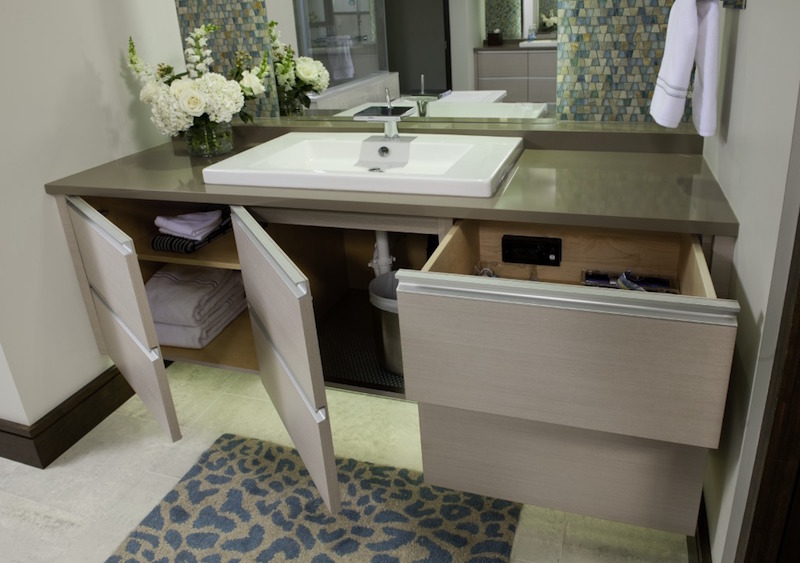 Photo Credit: Craig Thompson, Emily Miller CKD, Thomas S. Trzcinski
Photo Credit: Craig Thompson, Emily Miller CKD, Thomas S. Trzcinski
5. Built-In Storage
The biggest selling point of built-in storage is the fact that, since it is built right into the design of the bathroom, consumers don’t have to worry about a cluttered mess of hair and face products or shower caddies, blow dryers, and razors ruining the all-important clean lines of the transitional style they desire. Much of the built-in storage is hidden and works to keep the bathroom looking as clean as possible. Additionally, hidden and built in electrical outlets are increasing in popularity as well.
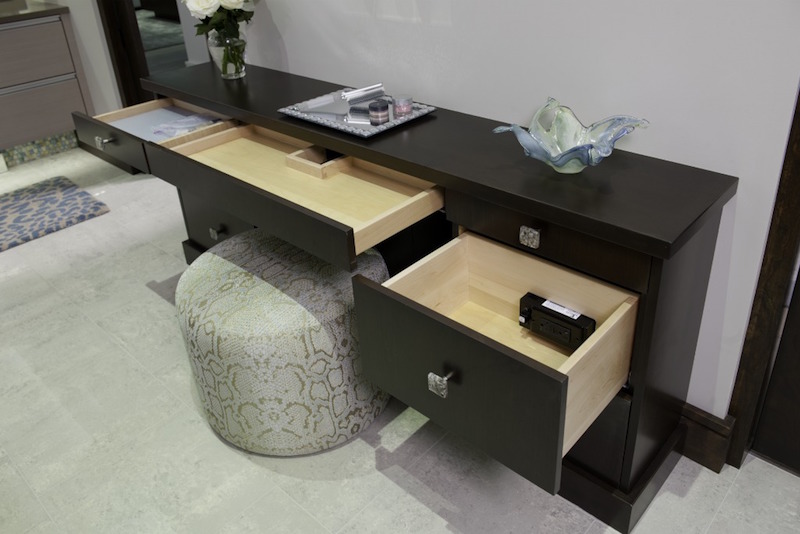 Photo Credit: Craig Thompson, Emily Miller CKD, Thomas S. Trzcinski
Photo Credit: Craig Thompson, Emily Miller CKD, Thomas S. Trzcinski
6. Sinks: Undermount are the most popular, trough sinks are emerging
The undermount sink continues to be the most popular style by a wide margin. But the trough sink is coming in as a dark house (no pun intended) in the race. 15% of NKBA members specified doing trough sinks in 2015, and that number is expected to increase slightly in 2016. Trough sinks fit in nicely in contemporary bathrooms as well as matching the clean lines of transitional bathrooms.
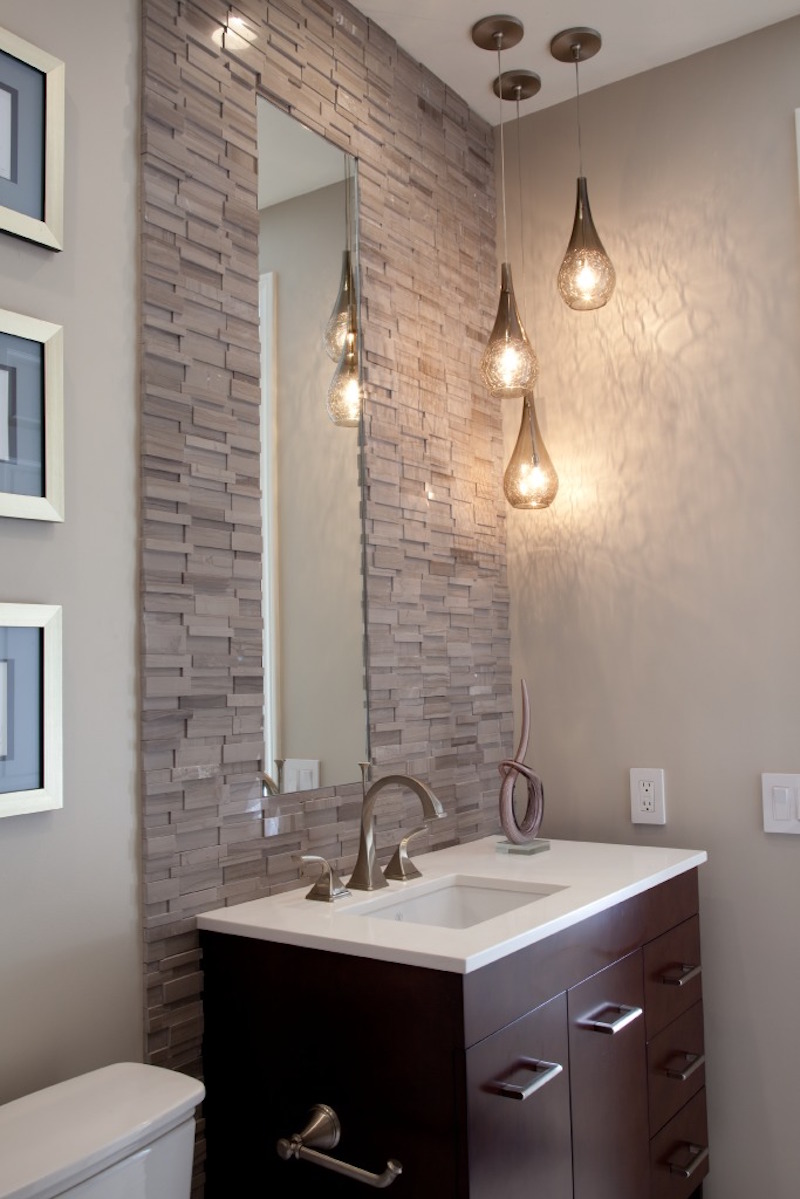 Photo Credit: Gail Owens, Michelle Strausbaugh, CKD, CBD
Photo Credit: Gail Owens, Michelle Strausbaugh, CKD, CBD
7. Freestanding Tubs
If it is a master bathroom that is being worked on, a freestanding tub seems to be the most popular option. 67% of NKBA members specified a free standing standard tub and 39% expect to do more in 2016, as opposed to only 8% who expect to do less. In addition, soaking tubs were specified 61% for 2015 and 32% of members expect to do more in 2016.
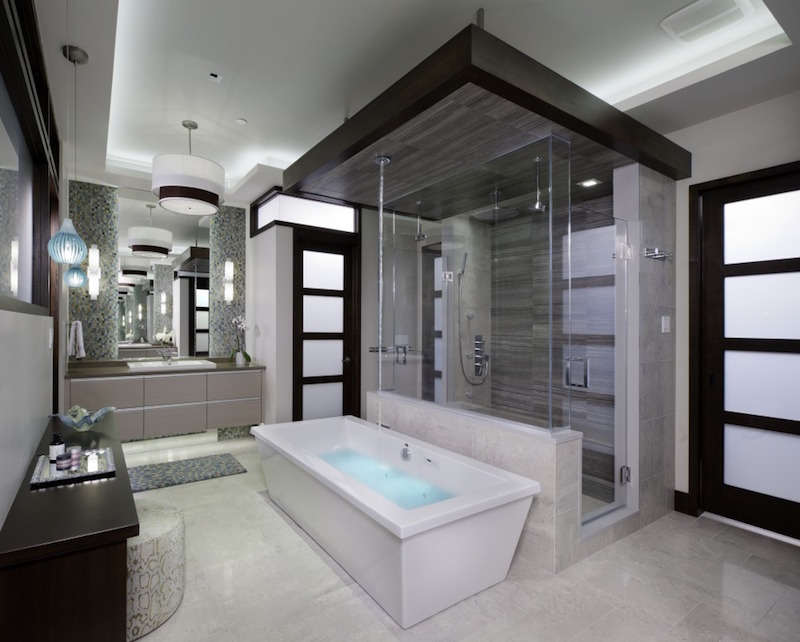 Photo Credit: Photo Credit: Craig Thompson, Emily Miller CKD, Thomas S. Trzcinski
Photo Credit: Photo Credit: Craig Thompson, Emily Miller CKD, Thomas S. Trzcinski
8. Tricked-out showers: Lights, seats, and hand showers
Showers are a great place to get some thinking done, but that is not to say they can’t be improved upon. Look at the Auguste Rodin sculpture The Thinker, and what do you notice? He is sitting down. No wonder more showers are incorporating amenities such as built-in seats and benches to go along with lights and a hand shower that works in tandem with the mounted showerhead. 59% of members specified a hand shower in addition to a mounted showerhead and 36% of respondents expect to do more in 2016.
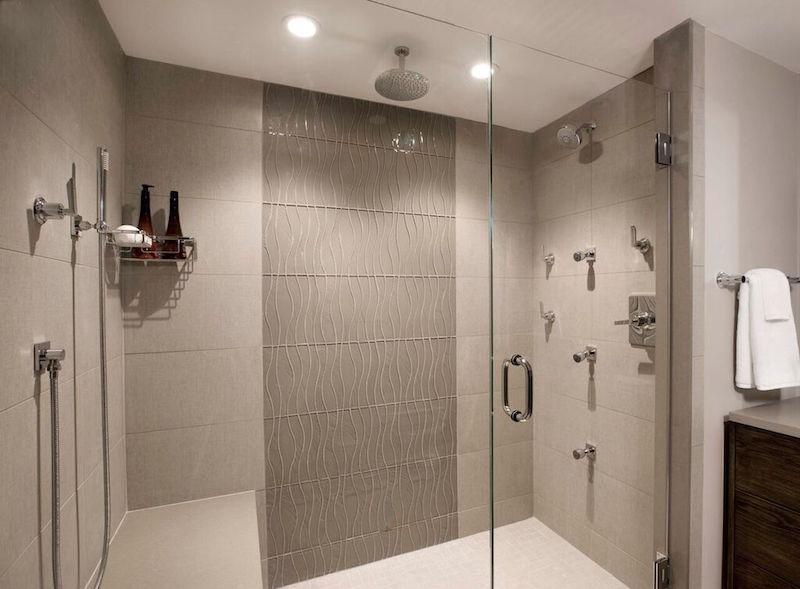 Photo Credit: Shelly Harrision, Jaye Gordon, Mark H. Haddad, AKBD
Photo Credit: Shelly Harrision, Jaye Gordon, Mark H. Haddad, AKBD
9. Polished chrome finishes
80% of NKBA members specified polish chrome finishes for faucets in 2015 and 35% expect to do more in 2016. The next most popular finishes were satin nickel, brushed nickel, and bronze/oil-rubbed bronze. Although, 22% of respondents expect to do less bronze/oil-rubbed bronze in 2016, the biggest decline for any finish.
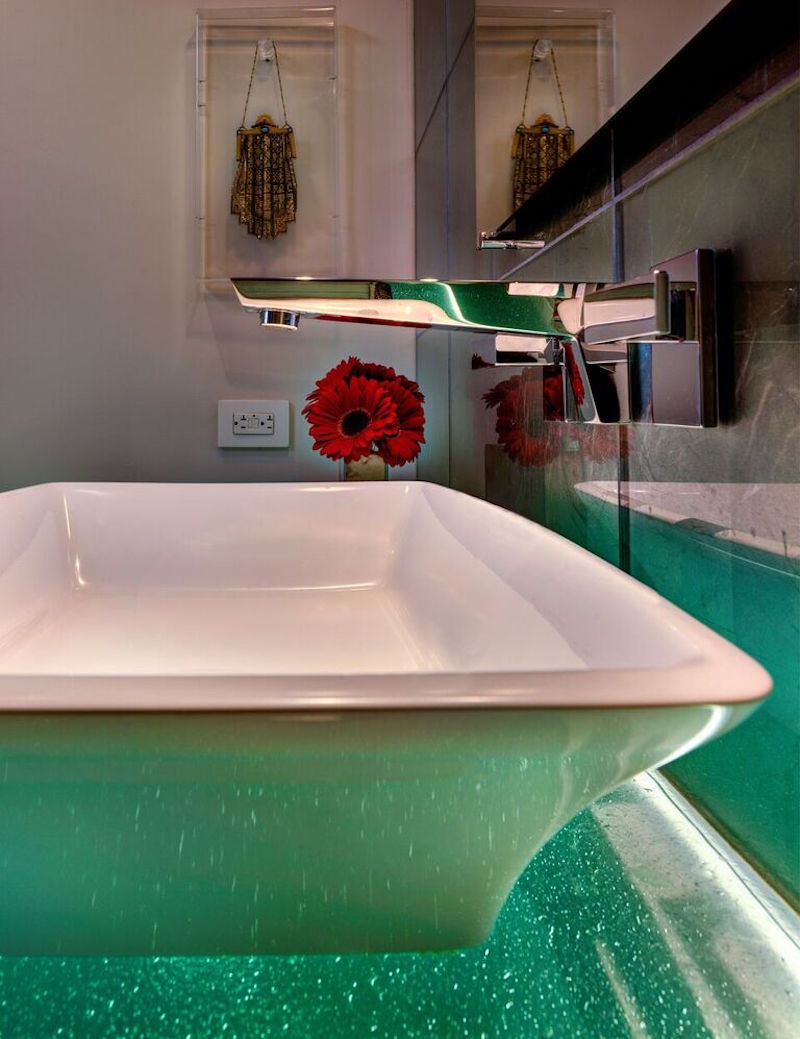 Photo Credit: Photo Credit: William Lesch, Lori Carroll, Debra Gelety
Photo Credit: Photo Credit: William Lesch, Lori Carroll, Debra Gelety
10. Personal luxuries
Now, these are the real bits and bobs that turn a bathroom into a room fit for a king. Amenities such as electric radiant floor heating, a TV in the mirror, steam showers, smart toilet seats, humidity sensing fans, coffee bars and wet bars, and towel warmers were all specified by at least 25% of NKBA members in 2015.
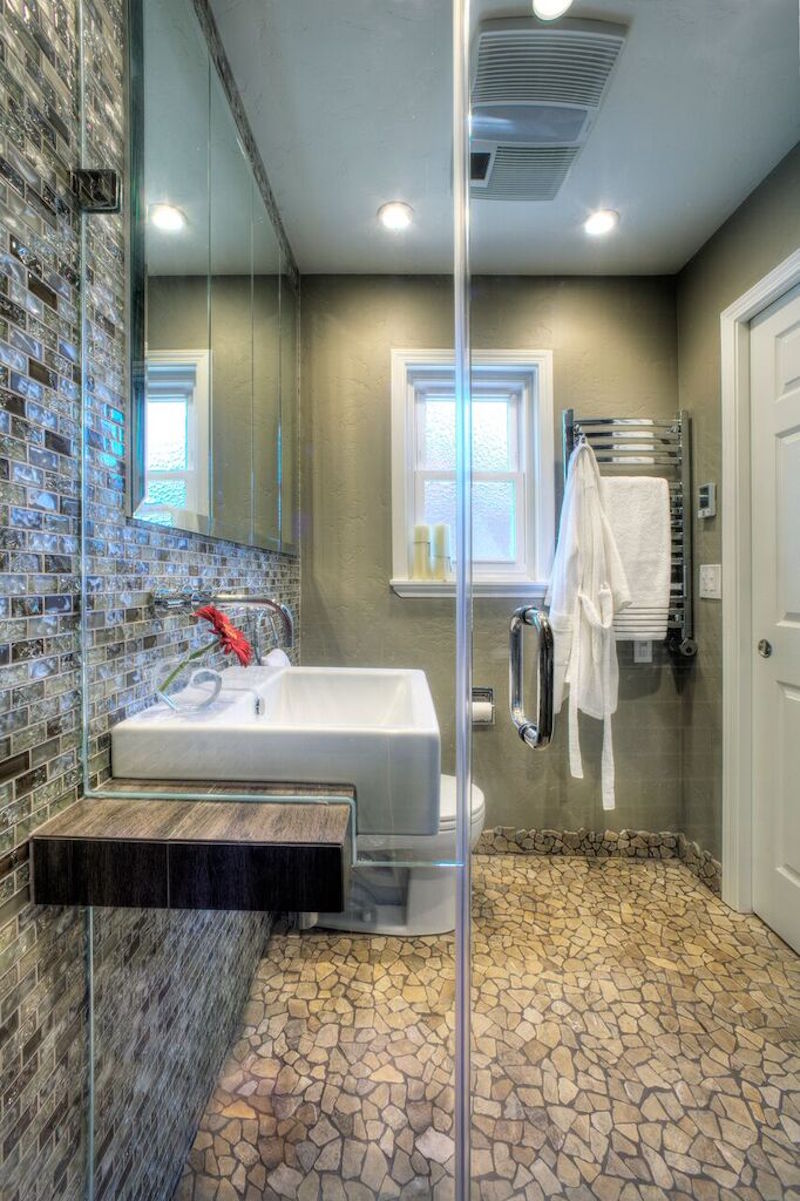 Photo Credit: Dave Adams, Cindy Garten
Photo Credit: Dave Adams, Cindy Garten
Related Stories
Multifamily Housing | Mar 14, 2023
Multifamily housing rent rates remain flat in February 2023
Multifamily housing asking rents remained the same for a second straight month in February 2023, at a national average rate of $1,702, according to the new National Multifamily Report from Yardi Matrix. As the economy continues to adjust in the post-pandemic period, year-over-year growth continued its ongoing decline.
Student Housing | Mar 13, 2023
University of Oklahoma, Missouri S&T add storm-safe spaces in student housing buildings for tornado protection
More universities are incorporating reinforced rooms in student housing designs to provide an extra layer of protection for students. Storm shelters have been included in recent KWK Architects-designed university projects in the Great Plains where there is a high incidence of tornadoes. Projects include Headington and Dunham Residential Colleges at the University of Oklahoma and the University Commons residential complex at Missouri S&T.
Mixed-Use | Mar 11, 2023
Austin mixed-use development will provide two million sf of office, retail, and residential space
In Austin, Texas, the seven-building East Riverside Gateway complex will provide a mixed-use community next to the city’s planned Blue Line light rail, which will connect the Austin Bergstrom International Airport with downtown Austin. Planned and designed by Steinberg Hart, the development will include over 2 million sf of office, retail, and residential space, as well as amenities, such as a large park, that are intended to draw tech workers and young families.
Multifamily Housing | Mar 7, 2023
Multifamily housing development in Chicago takes design inspiration from patchwork and quilting
HUB 32, a 65-unit multifamily housing development, will provide affordable housing and community amenities in Chicago’s Garfield Park neighborhood. Brooks + Scarpa’s recently unveiled design takes inspiration from the American tradition of patchwork and quilting.
Adaptive Reuse | Mar 5, 2023
Pittsburgh offers funds for office-to-residential conversions
The City of Pittsburgh’s redevelopment agency is accepting applications for funding from developers on projects to convert office buildings into affordable housing. The city’s goals are to improve downtown vitality, make better use of underutilized and vacant commercial office space, and alleviate a housing shortage.
Student Housing | Mar 5, 2023
Calif. governor Gavin Newsom seeks to reform environmental law used to block student housing
California Gov. Gavin Newsom wants to reform a landmark state environmental law that he says was weaponized by wealthy homeowners to block badly needed housing for students at the University of California, Berkeley.
Green Renovation | Mar 5, 2023
Dept. of Energy offers $22 million for energy efficiency and building electrification upgrades
The Buildings Upgrade Prize (Buildings UP) sponsored by the U.S. Department of Energy is offering more than $22 million in cash prizes and technical assistance to teams across America. Prize recipients will be selected based on their ideas to accelerate widespread, equitable energy efficiency and building electrification upgrades.
AEC Innovators | Mar 3, 2023
Meet BD+C's 2023 AEC Innovators
More than ever, AEC firms and their suppliers are wedding innovation with corporate responsibility. How they are addressing climate change usually gets the headlines. But as the following articles in our AEC Innovators package chronicle, companies are attempting to make an impact as well on the integrity of their supply chains, the reduction of construction waste, and answering calls for more affordable housing and homeless shelters. As often as not, these companies are partnering with municipalities and nonprofit interest groups to help guide their production.
Modular Building | Mar 3, 2023
Pallet Shelter is fighting homelessness, one person and modular pod at a time
Everett, Wash.-based Pallet Inc. helped the City of Burlington, Vt., turn a municipal parking lot into an emergency shelter community, complete with 30 modular “sleeping cabins” for the homeless.
Multifamily Housing | Mar 1, 2023
Multifamily construction startup Cassette takes a different approach to modular building
Prefabricated modular design and construction have made notable inroads into such sectors as industrial, residential, hospitality and, more recently, office and healthcare. But Dafna Kaplan thinks that what’s held back the modular building industry from even greater market penetration has been suppliers’ insistence that they do everything: design, manufacture, logistics, land prep, assembly, even onsite construction. Kaplan is CEO and Founder of Cassette, a Los Angeles-based modular building startup.


